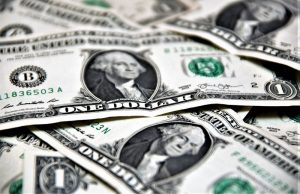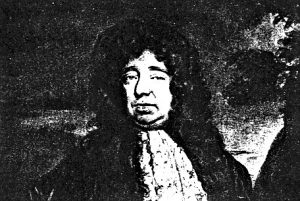Monetarism
Monetarism is a type of economic doctrine that studies the effects of different changes in the monetary supply on economic variables such as employment, prices or production. It has the idea that the monetary supply will increase producing a production growth in the short term, and inflation in the long term. Monetarism is based on the quantitative theory of money. This theory implies above all, an accounting identity; this means it must be true. It postulates that the monetary supply multiplied by the rhythm at which money circulates is equivalent to the nominal expenses of the quantity of goods and services that can be sold multiplied by the average price that has been paid. In monetarism, production speed is considered stable and the variations in income will be reflected in the quantity of goods sold and in the average price paid for them.
What is monetarism?
Monetarism is an economic doctrine that studies the effects that have the changes presented in the monetary supply on jobs, prices of products and their production, producing in this way a considerable increase in production in a short term and inflation in a long term.
Characteristics of monetarism
For monetarism, the State must remain on the margins of the business. From the point of view of monetarists, it should only be in charge of controlling the sums of money that circulate and that the economy requires.
They think that consumption is not influenced by short-term income, but by long-term income.
They consider the private sector to be the most stable.
They think that the state is solely responsible for the economic crises faced by countries.
They agree and support free trade and avoid state intervention.
History of monetarism
Monetarism as a doctrine emerged after the Second World War and came to question the tendency of the first Keynesians who put much emphasis on the fiscal policy that was given during the years 1935-1960. Monetary theory is the part of economics that analyzes and studies money’s behavior and its relationship with the economic system. For the classics of the time, this theory explained the correct way to determine the value of money.
During the Roman era, these thoughts were already known and then used to give an explanation about how inflation had been provoked during the sixteenth century caused by the large amount of gold that came from America, and which was gradually reaching European markets.
The origin of current monetarism can be found in the proposal made by John Stuart Mill regarding the general dependence of prices on the amount of money in circulation. This proposal suggests that the general level of prices is related to the amount of money multiplied by its velocity of circulation.
Milton Friedman and monetarism
Milton Friedman was a man who believed completely in free markets and mistrusted the state. An important economist of Hungarian origin, he was a great defender of the free market and an exponent of neoclassical monetarism within the Chicago School of Economics. He was a member of the Mont Pelerin Society, a society that believed in certain basic principles in favor of individual freedom, market economy, private property, and limited government in some respects.
Friedman was harshly criticized by some of his colleagues within this society. Some aspects that were criticized against him were his beliefs in aspects such as the negative income tax, the different flexible exchange rates, the antitrust laws, the opposition to gold and his criticism against the privatization of the different routes and the ocean.
Friedman was also a man who fought for choice freedom. For him, private property is the basis of all kinds of exchange, justice and progress within society. He defended capitalist laissez faire and also believed in Adam Smith’s invisible hand, in the sense that all the individual actions that were presented were in charge of maximizing both, the individual and the society’s well-being.
He was a great critic of Marx and Marxist doctrines regarding exploitation, he was also against anti-capitalist thoughts. He had a long struggle defending free trade, free immigration policy and globalization. He looked for a way to eliminate the barriers that caused a lower income of goods and services in some countries.
Friedman made important contributions to macroeconomics, microeconomics, economic history and statistics. In 1976, he was also awarded a Nobel Prize in Economics for all his achievements in the field of consumer analysis.
How to cite this article?
Briceño V., Gabriela. (2019). Monetarism. Recovered on 24 February, 2024, de Euston96: https://www.euston96.com/en/monetarism/










